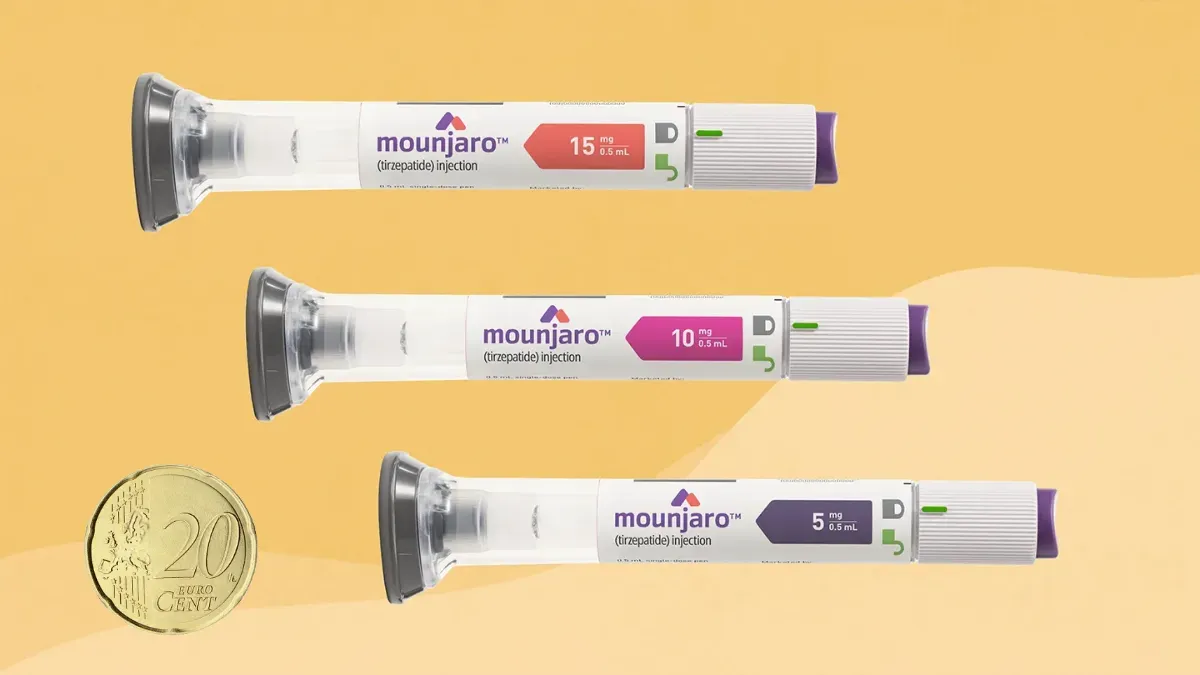Eighteen Cents: Living With Chronic Illness in Italy vs. the U.S.

I live in ‘socialist’ Italy, and thank fuck I do.
If I lived in the United States, I’d be dead or destitute.
On Saturday morning I walked out of my local pharmacy in Trento with two months’ worth of medicine for Type 2 diabetes, COPD, and high cholesterol.
Total cost: eighteen cents.
The same bag would cost me $1,600 to $3,000 in America.
The Bag That Bankrupted Nobody
Inside were:
- Mounjaro (tirzepatide) — a newer diabetes injection — about $1,000 a month in the U.S.
- Rolufta Ellipta inhaler — the same as Incruse Ellipta in the States, $300 on a good day
- Ezateros — a combination of rosuvastatin and ezetimibe that costs around $200 in America
- Glucophage Unidie (metformin) — cheap everywhere, but still marked up tenfold across the Atlantic
- Plus all the strips, lancets, and kit for my blood sugar monitor — free here, another 100 a month there
Now, let’s be clear: my Type 2 diabetes and COPD are, in large part, the result of my own life choices.
I smoked far too much. I got lazy and ate and drank with more enthusiasm than wisdom for decades.
This isn’t a story of blameless misfortune; it’s a story of a system that doesn’t abandon you when your own bad habits catch up with you.
And yes, I paid my way. I made National Insurance contributions in both the UK and Italy.
Because of a reciprocal agreement, my contributions from both countries were counted towards my pension.
But those lifetime payments were a fraction of what an American pays annually for private insurance that still comes with crippling co-pays and deductibles.
I’m 70, diabetic, and not exactly in fighting shape.
I didn’t win a lottery; I just live in a country that treats healthcare as a right, not a luxury brand.
Meanwhile, in America
In the U.S., even people with “good insurance” are playing Russian roulette with their health.
You’ve got monthly premiums of $400 to $800, deductibles that swallow the first few thousand dollars of your care, and prescription rules written by accountants, not doctors.
If you’ve got diabetes, COPD, or high cholesterol, congratulations — you’ve just become a full-time administrator.
You’ll spend your evenings arguing with insurance reps who’ll tell you your life-saving inhaler is “non-formulary” or that you need to “try cheaper alternatives first.”
Some people there literally ration insulin.
Take Alec Smith, a 26-year-old in Minnesota. When he aged off his parents’ health insurance, he was faced with a $1,300-a-month bill for his insulin.
He started rationing it to make it last. He was found dead in his apartment from diabetic ketoacidosis just one month later.
He was 26 years old.
His insulin cost more than his rent.
Others skip inhalers to buy food.
And politicians call it freedom.
How It Works Here
Italy’s public health service isn’t perfect — far from it.
There are waiting lists and mountains of paperwork.
But for chronic conditions, the fundamentals work.
As a diabetic, I’m exempt from paying for my regular lab work.
Every few months, I go in for a full blood panel and check-up — no bill, no fight.
And crucially, the system has flexibility.
If you want a faster appointment, nothing stops you from going private for about €100.
The only benefit is jumping the public queue by a few days.
It’s the exact same specialist you’d see for free in the public system.
But if your condition is urgent, you’re seen within two days or less in the public system for €27 — or in some cases, for free.
The bureaucracy can be frustrating, but at least it’s not a financial booby trap.
Not Utopia, Just Sanity
I’m not pretending Italy’s system is flawless.
Funding’s tight, staff are overworked, and plenty of hospitals are crumbling and held together with duct tape — especially in the south of the country.
But even at its worst, it’s still built on a simple, humane principle: that healthcare shouldn’t depend on how lucky you are with your employer, or how many zeros you’ve got in your bank account.
When I left that pharmacy with a bag full of life-saving medication for eighteen cents, I didn’t feel smug.
I felt sad — sad that in the richest country on Earth, millions of people are one bad lab result away from financial ruin,
and some, like Alec Smith, don’t even get that chance.
The U.S. healthcare system doesn’t just fail people — it punishes them for being sick.
Italy’s system, creaky and underfunded as it is, still manages to do what any decent society should:
keep its people alive without bankrupting them in the process.
Eighteen cents. That’s not socialism.
That’s just a country that decided sick people shouldn’t have to choose between bankruptcy and death.
Originally published at catsandbirdsandstuff.com on October 5, 2025.
More stories at catsandbirdsandstuff.com